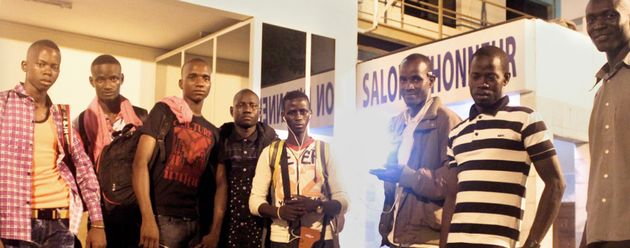A healthy, informed debate on the role of migration is sadly lacking in Europe. Europeans talk about migration, Africans talk about the diaspora.

Let’s get some facts straight about migration. In the Brexit debate and the recent US elections, ‘post-truth’ campaigns played on the feelings and fears of voters with distorted facts and straight out lies.
Widespread misconceptions about migration boost the popularity of continental populists and feed antagonism towards migrants. These distortions hinder the development of migration policies needed in response to new economic and demographic realities.
At the Forum for the Transformation of Africa (FTA) in Dakar, Senegal, this past week, I engaged alongside African participants in digging below the surface to discover what really lay beneath.
The first myth we addressed was the notion that we were living in times of unprecedented migration. Migration has been part of the human story from the start, as we read in the Bible about Babel, Abraham and the Israelites. More recently, waves of Europeans emigrated to other parts of the world in the 19th and 20th centuries. Sixty-five million left Europe for other shores from 1846 to 1924, including 17 million from Britain alone. That was 12 per cent of the continental population and over 40 per cent of Britain’s!
While global migration figures in 2000 doubled those of 1960, the world population had also doubled. Migration represented roughly a steady three per cent. What has changed recently is the direction of the migration, with Europe becoming a destination.
Tougher
A second myth, favoured by the right wing, was that tougher visa rules reduce immigration. Actually it has encouraged people to migrate permanently, making it very difficult to return to their motherland. In the United States, fewer Mexicans returned home after border controls became stricter.
Moroccans who used to shuttle to Spain and Italy for seasonal work were forced to choose to settle in Europe when visas were introduced in the 1990’s. Surinamese flocked to the Netherlands in unprecedented numbers when visas were introduced in 1980: 39,000 in 1973, 145,000 in 1981. More recently, stricter controls on one part of the European border only created greater numbers attempting to cross at another; the so-called water-bed effect.
A third myth, often touted by left-wingers, was that development aid would reduce emigration. Yet research indicates the opposite: more development results in more emigration. Poorer people simply cannot afford to travel. As income rises, so does emigration.
Development aid could also have a negative impact, my African friends told me. It often undermined local crops and products, encouraged a passive mentality and discouraged entrepreneurship and the development of local skills and knowledge. Frequently development came with strings attached: like access to mineral resources or back-payment under terms favourable for the European donor.
Diaspora
Healthy, informed debate on the role of migration is sadly lacking in Europe. Nation after nation seems to be buckling at the knees appeasing the fear-mongers. The OECD has produced a helpful report to raise awareness of the benefits of migration and to encourage policies to benefit both host countries and the migrants themselves.
Migrants account for a 70 per cent increase in the workforce in Europe over the past ten years, it argues. They fill important niches both in fast-growing and declining sectors of the economy. Young migrants are better educated than ‘natives’ nearing retirement. And they contribute significantly to labour-market flexibility, absorbing the shocks of changing employment in different countries.
Migration has boosted the number of workers and lowered the average age, an absolute necessity for the economy of a Europe facing a demographic winter, the OECD report claims. They bring skills and contribute to human capital development, as well as to technological progress.
But migrants are parasites, we are often told, living off our social welfare. Not true, says the report: they generally contribute more in taxes and social contributions than they receive in benefits. Even low-educated immigrants have a better fiscal position–the difference between their contributions and the benefits they receive–than their native-born peers. And where they don’t, it is because they often have lower wages and thus tend to contribute less, not due to a greater dependence on social benefits.
Europeans talk about migration, Africans talk about the diaspora. My Senegalese friends explained that migration was part of their age-old culture. Some 4.5 million Africans live in the global diaspora, and send €60 billion back home each year. Travel to Europe or America is part of the ritual of entering manhood, to send back money and earn respect.
Families and friends have sold personal possessions or taken loans to make the trip possible. The young men in the photo above at Dakar airport have just been turned back from Europe, but are determined to try yet again. Standing here outside the VIP Lounge(!), they face shame if they return without getting work somewhere in the west.
Migration is an industry supported broadly in African society and will not be deterred by walls, border controls or development aid in the near future.
Jeff Fountain is Director of the Schuman Centre for European Studies, and speaks on issues facing Christians today in Europe. He writes at Weekly Word.

Las opiniones vertidas por nuestros colaboradores se realizan a nivel personal, pudiendo coincidir o no con la postura de la dirección de Protestante Digital.
Si quieres comentar o